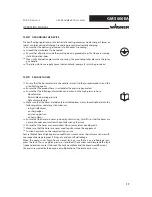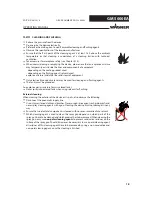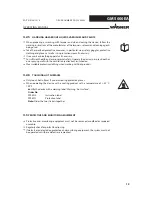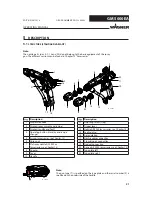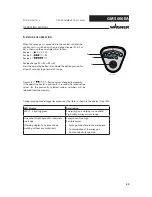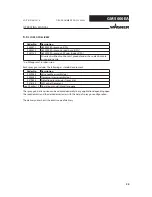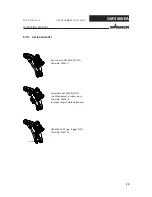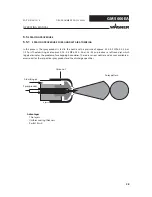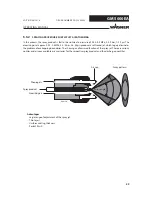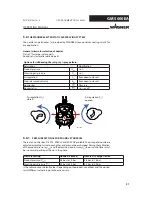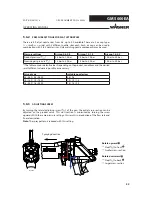
18
GM 5000EA
OPERATING MANUAL
EDITION 04/2016
ORDER NUMBER DOC2344499
4.2.4
CLEANING AND FLUSHING
Relieve the pressure from the device.
De-energize the device electrically.
Preference should be given to non-fl ammable cleaning and fl ushing agents.
Observe the specifi cations of the lacquer manufacturer.
Ensure that the fl ash point of the cleaning agent is at least 15 K above the ambient
temperature or that cleaning is undertaken at a cleaning station with technical
ventilation.
Take measures for workplace safety (see Chapter 4.1.3).
When commissioning or emptying the device, please note that an explosive mixture
may temporarily exist inside the lines and components of equipment:
- depending on the coating product used,
- depending on the fl ushing agent (solvent) used,
explosive mixture inside the lines and items of equipment.
Only electrically conductive tanks may be used for cleaning and fl ushing agents.
The tanks must be grounded.
An explosive gas/air mixture forms in closed tanks.
Never spray into a closed tank when using solvents for fl ushing.
External cleaning
When cleaning the exterior of the device or its parts, also observe the following:
Disconnect the pneumatic supply line.
Use only moistened cloths and brushes. Never use abrasive agents or hard objects and
never spray cleaning agents with a gun. Cleaning the device must not damage it in any
way.
Ensure that no electrical component is cleaned with nor even immersed into solvent.
Which cleaning agent is used to clean the spray gun depends on which parts of the
spray gun have to be cleaned and which product has to be removed. When cleaning the
spray gun, only use
non-polar cleaning agents
to prevent conductive residues on the
surface of the spray gun. Should it however, be necessary to use a polar cleaning agent,
all residues of this cleaning agent have to be removed by using a non-conductive and
non-polar cleaning agent, once the cleaning is fi nished.














